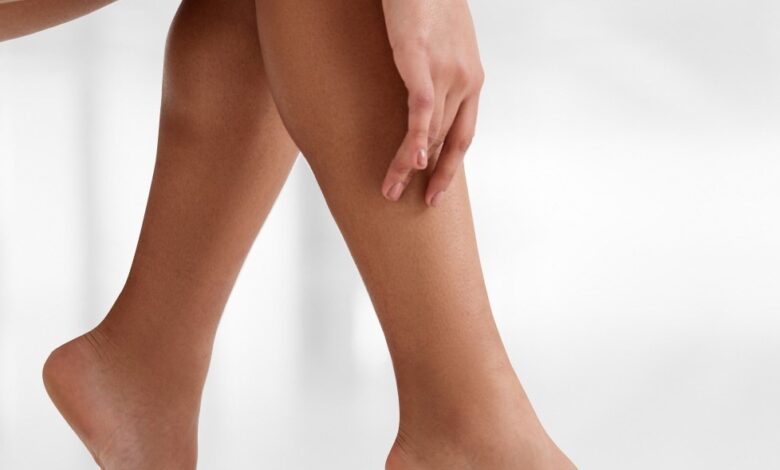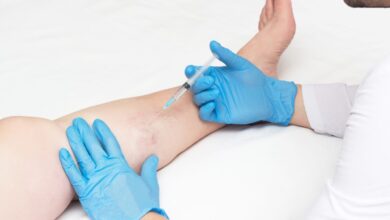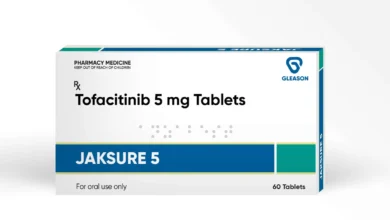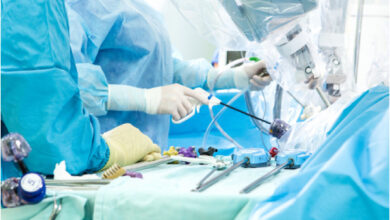What Are the Benefits of Consulting a Vein Specialist Doctor?

When dealing with venous conditions like varicose veins or spider veins, you may wonder, “What kind of doctor is a vein specialist?” Knowing the answer can lead you to the right treatment and greatly improve your quality of life. A vein specialist is a healthcare professional who is trained to diagnose and treat conditions related to your veins, and their expertise is crucial in ensuring proper care. This article will explore the advantages of consulting a vein specialist, what they do, and how they can help you manage vein-related issues.
What Does a Vein Specialist Do?
A vein specialist, often referred to as a vascular surgeon or phlebologist, is a doctor who focuses on diagnosing and treating conditions that affect the veins. Common problems they treat include varicose veins, spider veins, and deep vein thrombosis. These specialists have an in-depth understanding of the circulatory system, particularly the blood vessels, and are trained to handle both medical and cosmetic treatments.
The importance of consulting a vein specialist cannot be overstated, especially if you are dealing with discomfort or health risks related to your veins. These doctors have the skills to provide you with accurate diagnoses and a variety of treatment options tailored to your specific condition. For example, if you’re suffering from varicose veins, a vein specialist can help reduce your pain and discomfort, while also improving the appearance of your legs.
Types of Doctors Who Treat Vein Conditions
There are several types of doctors who can be considered vein specialists, each with their own area of expertise. Understanding the different types can help you determine which specialist you need to consult.
- Vascular Surgeons
Vascular surgeons are medical doctors who specialize in surgery of the circulatory system, including veins and arteries. They are highly trained in both invasive and non-invasive procedures for vein-related conditions. Vascular surgeons typically handle more complex vein issues, such as deep vein thrombosis or varicose veins that require surgery. Consulting a vascular surgeon can be particularly beneficial if you need surgery to correct a venous issue, as they have years of specialized training. - Phlebologists
A phlebologist is a doctor who specializes in vein conditions, but unlike vascular surgeons, they focus more on non-surgical treatments. Phlebologists often treat varicose veins and spider veins with procedures such as sclerotherapy, laser therapy, and radiofrequency ablation. These doctors are ideal for people who are looking for minimally invasive solutions to their vein problems. - Dermatologists
While dermatologists primarily focus on skin conditions, they are also qualified to treat some vein-related issues, especially those that affect the skin’s surface, like spider veins. Dermatologists often perform cosmetic procedures to reduce the appearance of veins, making them a good option if you’re primarily concerned about the aesthetic impact of your vein condition. - Interventional Radiologists
Interventional radiologists use imaging techniques like ultrasound and X-rays to guide minimally invasive procedures for vein conditions. These doctors often treat varicose veins and blood clots using advanced techniques such as catheter-assisted procedures. Interventional radiologists are particularly useful for diagnosing complex vein issues and performing delicate, non-surgical interventions.
Why Is It Important to See a Vein Specialist?
Vein conditions can range from being a cosmetic concern to a serious health issue. For example, varicose veins can be painful and lead to complications such as ulcers or blood clots if left untreated. Consulting a vein specialist ensures that your condition is accurately diagnosed and properly managed. Here are some reasons why seeking the help of a vein specialist is crucial:
- Accurate Diagnosis
Vein conditions often share symptoms with other medical issues, making self-diagnosis difficult. A vein specialist can use diagnostic tools such as ultrasounds to get a detailed look at your veins and identify the exact issue. This ensures that you receive the correct treatment. - Tailored Treatment Plans
Every patient’s condition is unique, and vein specialists understand this. They can create personalized treatment plans that suit your needs, whether you require a minimally invasive procedure like sclerotherapy or a more complex surgical intervention. Consulting a vein specialist ensures that you receive the most effective treatment for your specific condition. - Preventing Complications
Some vein conditions, like deep vein thrombosis, can lead to serious complications such as pulmonary embolism if not treated properly. A vein specialist can identify potential risks and take steps to prevent complications. By consulting with a specialist, you can address your vein condition early and avoid more serious health problems down the line.
Common Treatments Offered by Vein Specialists
Vein specialists offer a wide range of treatments depending on the severity of your condition. Here are some common treatments that you might receive when consulting a vein specialist:
- Sclerotherapy
Sclerotherapy is a non-surgical treatment that involves injecting a solution into the affected vein, causing it to collapse and eventually fade. This procedure is commonly used to treat both varicose and spider veins and is relatively quick and painless. - Laser Therapy
Laser therapy uses focused light to target and close off small veins, making it an excellent option for treating spider veins. It’s a non-invasive procedure that typically requires little to no recovery time. - Radiofrequency Ablation
Radiofrequency ablation is another minimally invasive procedure that uses heat generated by radiofrequency energy to close off varicose veins. This treatment is often used for larger veins and can be done on an outpatient basis. - Vein Stripping and Ligation
For more severe cases of varicose veins, vein stripping and ligation may be necessary. This surgical procedure involves removing or tying off the affected vein to improve blood flow. While more invasive, it is highly effective for treating large, problematic veins.
How to Choose the Right Vein Specialist
Choosing the right vein specialist is essential for ensuring that you receive the best possible care. Here are some factors to consider when selecting a doctor:
- Credentials and Experience
Make sure that the specialist you choose is board-certified and has extensive experience in treating vein conditions. Ask about their training and how many similar procedures they have performed. - Treatment Options
It’s important to find a specialist who offers a variety of treatment options, as this will allow you to receive the best possible care for your specific condition. Some specialists may only offer surgical treatments, while others focus on non-invasive procedures. - Patient Reviews
Reading patient reviews can provide valuable insight into a specialist’s expertise and patient care. Look for doctors who have positive reviews and high ratings from previous patients.
Conclusion
When it comes to treating venous conditions, knowing what kind of doctor is a vein specialist is crucial for finding the right care. Whether you’re dealing with varicose veins, spider veins, or more complex vascular issues, consulting a vein specialist ensures that you receive an accurate diagnosis and effective treatment. These specialists have the expertise to tailor their approach to your specific needs, improving both your health and quality of life. If you’re experiencing vein-related symptoms, don’t hesitate to seek out the help of a qualified vein specialist.





